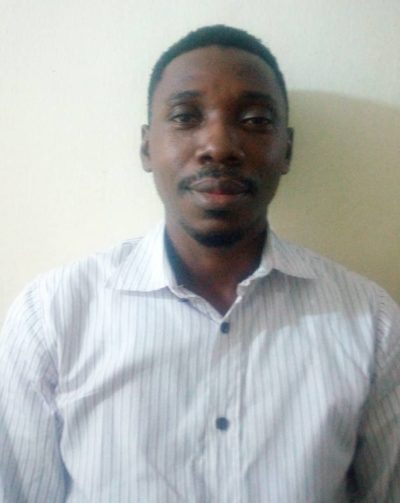The various options available to fund healthcare services delivery include:
Out-of-pocket payments
This is the most common source of about 70 percent of healthcare funding in Nigeria and it involves payment for healthcare services at the point of service to the service provider without refund to the payee. The range of fees differs, depending on service providers and may include drug costs, medical material costs, entrance fees, and consultation fees.
In 2007, out-of-pocket payments increased from 92.7 per cent to 95.5 per cent of private expenditure, a figure considered as one of the highest globally. On the average, about 4 per cent of households spend more than half of their total household expenditures on healthcare and 12 per cent spend more than a quarter.

Out-of-pocket payment remains the dominant mode of financing healthcare in developing countries and a major limitation, if an expensive healthcare service is to be accessed. This can lead to poor health-seeking behaviours and inequity.
In Nigeria, out-of-pocket payments constitute the largest chunk of total health expenditure, resulting in financial catastrophe and bankruptcy. According to Yunusa et al., evidence has shown that about 64 per cent of total health expenditure or US$ 23 per capita is from out-of-pocket payment. Also, about 4 per cent of households are estimated to spend more than half of their total household expenditures on healthcare and 12 percent of them are estimated to spend more than a quarter (FRN, 2006).
Again, out-of-pocket payment as a percentage of total health expenditure was around 64.59 percent from 1998 to 2002, 74 per cent in 2003, 66 per cent in 2004 and 68 per cent in 2005, as posited by Soyibo et al (2009). It is a common practice to see families taking loans, selling off inheritance or engaging in fundraising campaigns online and offline just to be able to afford payment for healthcare services.
One reason why out-of-pocket payment system is readily adopted in Nigeria is that one can hardly get quality service from the public health system and the private sector is not adequately regulated; thus giving operators the opportunity to maximise profit at the expense of the right to health. The out-of-pocket payment system is thus an antithesis to one of the goals of a healthcare system, which is to protect families against financial ruin as a result of medical bills.
Tax-based funding
Health financing systems where government revenues are the main source of healthcare expenditure are referred to as tax-based systems. The health system is generally funded from a federation account to the states and LGAs, both of which also generate about 20 percent internal revenue from taxes, rates and levies.
Public health facilities in Nigeria are financed primarily by the public through tax revenues. Revenues collected by the federal government include crude oil and gas export proceeds, petroleum profit tax, royalties and other related proceeds of domestic crude oil sales/other oil revenues, companies’ income tax, customs and exercise duties, value-added tax (VAT), tax on petroleum products, education tax, and other items of independent revenues to the federal government (Obansa & Orimisan, 2013).
Government health expenditure as a percentage of total health expenditure was valued at 18.69 per cent, 26.04 per cent and 26.02 per cent in 2003, 2004 and 2005 respectively, according to Soyibo, Olaniyan & Lawanson (2009). Federal government capital expenditure on health has not been significant over the years despite the Abuja Declaration signed by Nigeria and 43 other African countries in 2001, in which they pledged themselves to committing at least 15 percent of their annual budgets on public health.
Notwithstanding the fact that the agreement was reached and signed in Abuja, Nigeria, the Nigerian government seems to be paying lip service to the funding of health services (Obansa & Orimisan, 2013). Although the federal budgetary component of health expenditure has increased over the years – 1.7 per cent in 1991 to 7.2 per cent in 2007 (WHO, 2009, Nigerian Health System, 2011), this allocation for health is still below the 15 per cent signed by the Nigerian government in the Abuja declaration, as documented by the WHO (2009).
Presently, Nigeria spends less than 5 per cent of its gross domestic product (GDP) on health, and annual per capita health spending is less than the US$ 35 proposed by Commission on Macroeconomics and Health (FRN, 2006) despite the fact that a study by Agbatogun & Taiwo (2010) showed that Gross Domestic Product GDP is the most important determinant of health allocation.
This poor allocation of resources to the health sector has resulted in health services being without the reach of many Nigerians, majority of whom rely on the government to cater for their health needs. A viable market is thus created for healthcare services providers within the private sector and these consider health as a business and not as a public service which it is. In fact, more recently, there has been a clamour in some quarters that this little contribution from government be privatised thus making the health sector totally within the scope of the private sector.
Donor funding
This refers to financial assistance given to developing countries by external agencies and non-governmental organisations, like the WHO, World Bank and UNICEF, to support socioeconomic and health development, perhaps in the form of loans or of aid grants. The donor countries were given the target of 0.7 per cent of their gross national product as Official Development Assistance (ODA) to developing countries (WHO, 2O12).
The annual average ODA inflow from 1999 to 2007 was estimated at US$2.335 and US$4.674 per capita, respectively (WHO, 2007; UNDP, 2011). These figures are way below the sub-Saharan African average of US$28 per capita (7.57).
The contribution of development aid to healthcare financing in Nigeria was projected at N27.87 billion (4 per cent of total health expenditure) in 2003, with a 29 per cent increase to N36.04 billion (4.6 per cent of total health expenditure) in 2004 and a 1 per cent increase in 2005 to N36.30 billion (4 per cent of total health expenditure) (Soyibo et al, 2005).
Although international assistance to the Nigerian health sector is increasing, it still accounts for a small proportion of public health expenditures (Yunusa et al, 2014) and there are enormous challenges in fund-coordination and tracking the flow of donor resources (WHO, 2009).
Health insurance
Health insurance is a form of pooling of resources and health risk. It is fundamentally the accumulation and management of prepaid health care revenue on trust for the population, ensuring that the cost of healthcare is distributed among all the members of the pool.
Nduaka (2018) described health insurance as the advance payment for medical services through contributions or payment of premiums into a common pool (fund), from which a part or all of a defined benefit package can be settled at the time of need. This enables the burden of the direct cost of healthcare to an individual to be spread among a group of people who share the risks, and over a period of time, rather than being met at the point of delivery by a single individual.
The idea is to enable contributors to the scheme get benefits, due to the uncertainty underlying ill-health occurrence and payments for treating such ill-health. This underlying idea is premised on the fact that the need for healthcare is often highly unpredictable and very costly for the individuals, although it is predictable for large groups (Uzochukwu et al, 2015). It is a system of financing healthcare through contributions to an insurance fund that operates within the framework of government regulations.
Nigeria runs a National Health Insurance Scheme (NHIS) which was designed to reduce the financial burden of out-of-pocket payment for healthcare services. Incidentally, the NHIS covers only 4-5 percent of Nigerians, mainly workers with the federal government; the urban self-employed; rural community; children under-five; permanently disabled persons; prison inmates; tertiary institutions; voluntary participants; and armed forces, police and other uniformed services. Of all these, it is only among federal government employees that the scheme works well to a certain extent and this is because it is mandatory for federal government employees.
Enrolees under the scheme are required to contribute 15 per cent of their monthly salary to the scheme in such arrangement that the federal government pays 10 per cent, while the remaining 5 percent is paid by the beneficiary. Unfortunately, however, this has not been attained and majority of the formal sector (federal, state, local government and the organised private sector) is yet to fully subscribe to the scheme. For instance, only two states (Cross River and Bauchi) have enrolled and are said to have achieved full coverage, as reported by NHIS (2011), while only nine other states that have shown interest are still waiting to join the scheme.
It has been observed that some private companies have health insurance cover for their employees covering about 1 per cent of Nigerians. The contribution of NHIS to health funds remains low at about 2 per cent of overall health expenditure and it is plagued by poor penetration, low acceptance and narrow benefit packages (Lawan et al, 2012).
Another variant of health insurance is the community-based health insurance (CBHI) financing in which households in a community finance or co-finance the costs associated with a given set of health services and, at the same time, participating in the management of the community financing scheme and the organization of the health services (Carrin, 2007). This variant is designed for people living in the rural area and people in the informal sector who cannot get adequate public, private, or employer-sponsored insurance (Uzochukwu et al, 2009). It is normally voluntary as against the SHI schemes which tend to be mandatory.
By Comrade Olubunmi Akinola, Assistant Gen Secretary, Ogun State NANNM











generic tadalafil: http://tadalafilonline20.com/ tadalafil pills 20mg
tadalafil buy – tadalafil buy online tadalafil 20mg